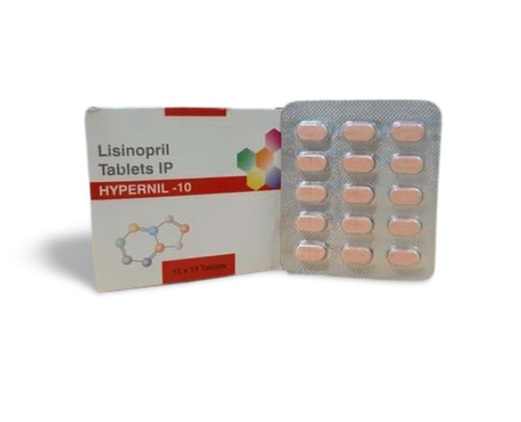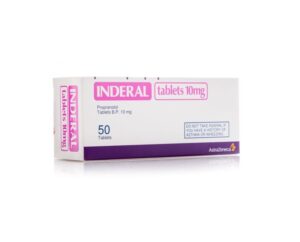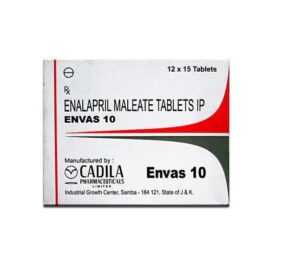Uses
Lisinopril is used to treat high blood pressure. Lowering high blood pressure helps prevent strokes, heart attacks, and kidney problems. It is also used to treat heart failure and to improve survival after a heart attack.Lisinopril belongs to a class of drugs known as ACE inhibitors. It works by relaxing blood vessels so blood can flow more easily.
How to use Prinivil
Take this medication by mouth with or without food as directed by your doctor, usually once daily.
If you are using the suspension form of this medication, shake the bottle well before each dose. Carefully measure the dose using a special measuring device/spoon. Do not use a household spoon because you may not get the correct dose.
The dosage is based on your medical condition and response to treatment. For children, the dosage is also based on weight.
To reduce your risk of side effects, your doctor may direct you to start this medication at a low dose and gradually increase your dose. Follow your doctor’s instructions carefully.
Side Effects
Dizziness, lightheadedness, tiredness, or headache may occur as your body adjusts to the medication. Dry cough may also occur. If any of these effects last or get worse, tell your doctor or pharmacist promptly.
To reduce the risk of dizziness and lightheadedness, get up slowly when rising from a sitting or lying position.
Remember that this medication has been prescribed because your doctor has judged that the benefit to you is greater than the risk of side effects. Many people using this medication do not have serious side effects.
Tell your doctor right away if you have any serious side effects, including: fainting, symptoms of a high potassium blood level (such as muscle weakness, slow/irregular heartbeat).
Although lisinopril may be used to prevent kidney problems or treat people who have kidney problems, it may also rarely cause serious kidney problems or make them worse. Your doctor will check your kidney function while you are taking lisinopril. Tell your doctor right away if you have any signs of kidney problems such as a change in the amount of urine.
Lisinopril may rarely cause serious (possibly fatal) liver problems. Get medical help right away if you have any symptoms of liver damage, such as: nausea/vomiting that doesn’t stop, loss of appetite, stomach/abdominal pain, yellowing eyes/skin, dark urine.
A very serious allergic reaction to this drug is rare. However, get medical help right away if you notice any symptoms of a serious allergic reaction, including: rash, itching/swelling (especially of the face/tongue/throat), severe dizziness, trouble breathing.
Before taking lisinopril, tell your doctor or pharmacist if you are allergic to it; or to other ACE inhibitors (such as benazepril); or if you have any other allergies. This product may contain inactive ingredients, which can cause allergic reactions or other problems. Talk to your pharmacist for more details.
Before using this medication, tell your doctor or pharmacist your medical history, especially of: history of an allergic reaction which included swelling of the face/lips/tongue/throat (angioedema), blood filtering procedures (such as LDL apheresis, dialysis), high level of potassium in the blood.
This drug may make you dizzy. Alcohol or marijuana (cannabis) can make you more dizzy. Do not drive, use machinery, or do anything that needs alertness until you can do it safely. Limit alcoholic beverages. Talk to your doctor if you are using marijuana (cannabis).
Too much sweating, diarrhea, or vomiting may cause dehydration and increase your risk of lightheadedness. Report prolonged diarrhea or vomiting to your doctor. Be sure to drink enough fluids to prevent dehydration unless your doctor directs you otherwise.
Before having surgery, tell your doctor or dentist about all the products you use (including prescription drugs, nonprescription drugs, and herbal products).








Reviews
There are no reviews yet.